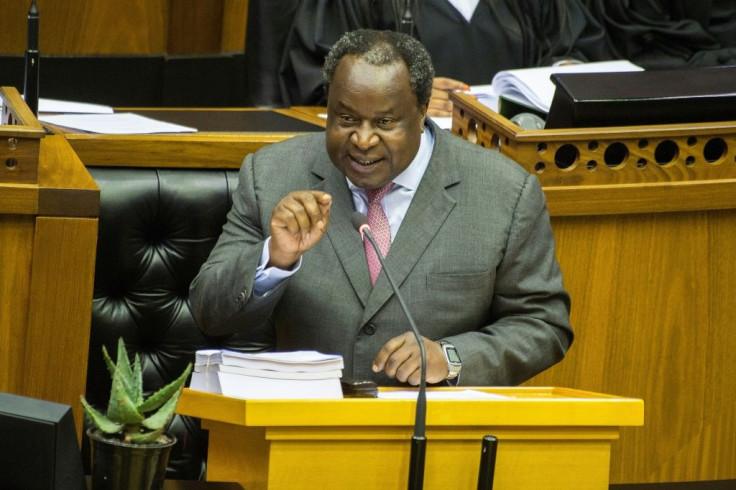South Africa Lays Out Budget As Economy Reels From Pandemic
South Africa will unveil government spending plans for the 2021 financial year on Wednesday, as the continent's most industrialised economy grapples with recovering from the coronavirus and a pre-pandemic recession.
Finance Minister Tito Mboweni usually delivers his national budget speech alongside a potted aloe vera plant, highly resistant to drought, as a symbol of South Africa's economic resilience.
Resilience will be needed after a year of rolling restrictions on movement and business to curb the coronavirus outbreak.
"There's not a lot of money and we need to have a pro-poor and pro-growth balance," University of Johannesburg business lecturer Daniel Meyer told AFP.
He added that increasing taxes was not an option, following the pandemic-induced loss of livelihoods, and with local elections due this year.
Official unemployment in South Africa soared to a record 32.5 percent in the fourth quarter of last year, the highest since records began in 2008.
Mboweni "will have to take more loans to finance the budget," Meyer said.
But public debt is already expected to reach over 80 percent of GDP this year.
"Debt... is rising out of control," Meyer warned, noting that a junk status downgrade last year would make borrowing more expensive.
"So (Mboweni) will have to cut the (public) wage bill."

South Africa is the country hardest-hit by coronavirus in Africa.
It declared a "national state of disaster" last March and imposed one of the world's strictest lockdowns, which has been gradually eased over the past year.
Measures to stem the spread of the virus, including a six-month border closure, blocked tourists and capital from overseas.
The global economic downturn brought on by the virus dried up revenues, stifling emerging markets and compounding pre-existing struggles.
The African continent saw its foreign direct investment decrease by between 25 and 40 percent, and remittances drop by nine percent, according to the UN Conference on Trade and Development.
South Africa, which derives at least eight percent of its GDP from mineral exports, has been particularly hard-hit.
"Poverty is on the rise. Inequality is deepening," President Cyril Ramaphosa said in an annual address to the nation this month.
Without detailing economic recovery plans, he compared South Africans to fynbos -- a local plant species whose growth is stimulated by fires, blossoming directly from the ashes.
"Like all those who have walked this land before us, we will rise again," assured an upbeat Ramaphosa.
He pointed to the potential of job creation through the private sector, citing a recent $1 billion investment by US car manufacturer Ford.
The International Monetary Fund meanwhile estimates that South Africa's economy contracted by eight percent last year, predicting growth of just three percent for 2021.
© Copyright AFP 2024. All rights reserved.











